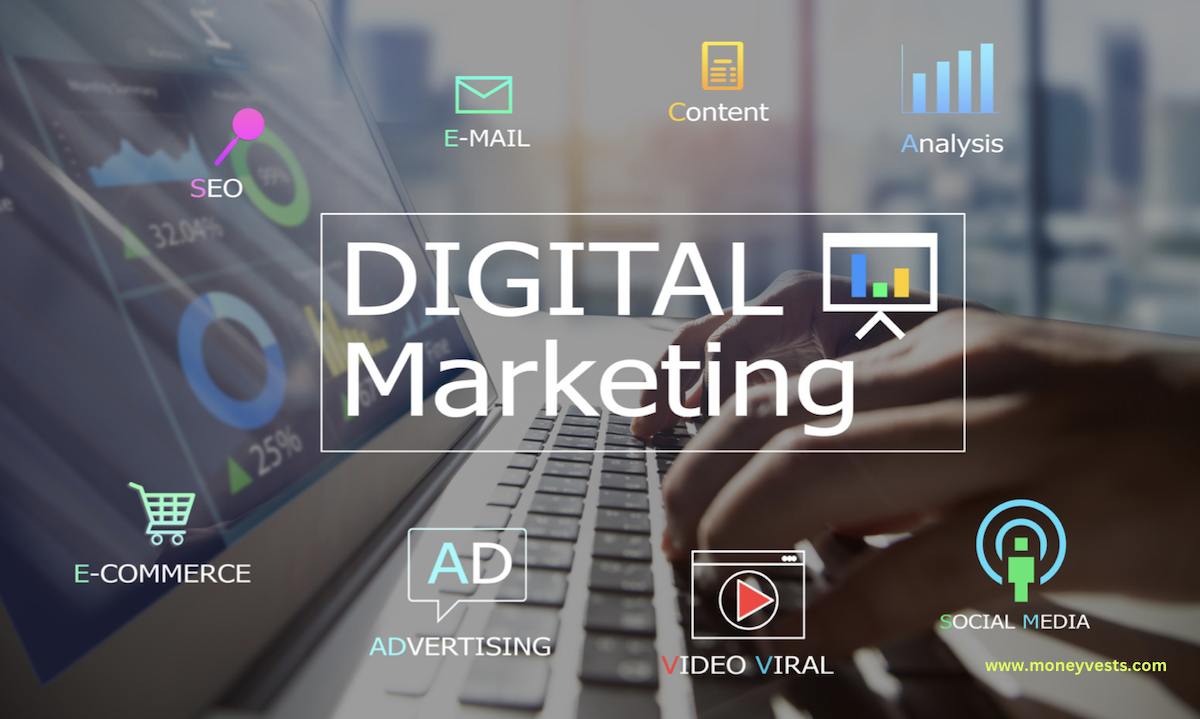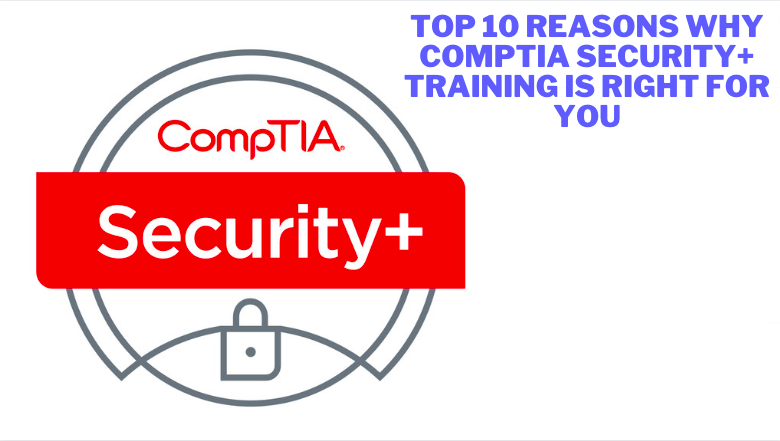Digital Marketing
10 Most Demanded Digital Marketing Skills

Table of Contents
10 Most Demanded Digital Marketing Skills
As the digital landscape continues to evolve, it’s crucial for businesses to stay ahead of the curve. To do so, they need professionals with the right digital marketing skills.
In this article, we’ll dive into the top 10 most demanded digital marketing skills and provide valuable insights to help you enhance your expertise in these areas.
#1. Search Engine Optimization (SEO)
SEO is the process of optimizing websites and their content to rank higher on search engine results pages (SERPs). This is a critical skill for digital marketers, as higher rankings translate to increased visibility and organic traffic. Some key aspects of SEO include:
- Keyword research
- On-page optimization
- Off-page optimization
- Technical SEO
To further your SEO knowledge, consider checking out resources like Moz’s Beginner’s Guide to SEO.
2. Pay-Per-Click (PPC) Advertising
PPC advertising refers to paid digital marketing campaigns where advertisers pay a fee each time one of their ads is clicked. Some popular PPC platforms include Google Ads, Facebook Ads, and Bing Ads. A PPC specialist should be adept at:
- Keyword research and selection
- Ad copywriting
- Campaign management
- Conversion rate optimization
To learn more about PPC advertising, explore Google’s Ads Academy.
#3. Social Media Marketing
Social media marketing is the practice of promoting products and services on social media platforms like Facebook, Twitter, Instagram, and LinkedIn. As a social media marketer, you should know how to:
- Develop a social media strategy
- Create engaging content
- Manage social media profiles and communities
- Analyze and measure success
To expand your social media marketing skills, consider taking a course like HubSpot’s Social Media Certification.
4. Content Marketing
Content marketing is the creation and distribution of valuable, relevant, and consistent content to attract and engage a target audience. A content marketer should be skilled in:
- Content strategy and planning
- Copywriting and editing
- Multimedia content creation (e.g., videos, podcasts, infographics)
- Content promotion and distribution
To improve your content marketing abilities, explore resources like Content Marketing Institute.
#5. Email Marketing
Email marketing is the use of email to promote products and services, build relationships with customers, and drive conversions. Effective email marketers should be proficient in:
- Email marketing platforms (e.g., Mailchimp, SendinBlue)
- List building and segmentation
- Email copywriting and design
- Campaign analysis and optimization
To enhance your email marketing skills, check out Litmus’s Email Marketing Resources.
#6. Marketing Analytics
Marketing analytics is the practice of measuring, managing, and analyzing marketing performance data to improve the effectiveness of campaigns and strategies. A marketing analyst should be skilled in:
- Data collection and analysis
- Reporting and visualization
- Marketing performance optimization
- Understanding and utilizing marketing analytics tools (e.g., Google Analytics)
To learn more about marketing analytics, consider enrolling in Google Analytics Academy.
#7. User Experience (UX) Design
UX design focuses on creating seamless, enjoyable experiences for users interacting with digital products and services. A UX designer should be adept at:
- User research.
- Information architecture.
- Wireframing and prototyping.
- User interface (UI) design.
- Usability testing.
To sharpen your UX design skills, consider taking a course like Interaction Design Foundation’s UX Courses.
#8. Conversion Rate Optimization (CRO)
CRO is the process of increasing the percentage of website visitors who take a desired action, such as making a purchase or signing up for a newsletter. A CRO expert should be proficient in:
- Landing page optimization
- A/B testing
- User behavior analysis
- Conversion funnel optimization
To deepen your understanding of CRO, explore resources like CXL Institute’s Conversion Optimization Minidegree.
#9. Mobile Marketing
Mobile marketing involves promoting products and services to users on smartphones, tablets, and other mobile devices. A mobile marketer should be skilled in:
- Mobile advertising (e.g., in-app ads, mobile search ads)
- App store optimization (ASO)
- Mobile website design and optimization
- SMS and push notifications
To learn more about mobile marketing, check out Mobile Marketing Association’s Resources.
#10. Influencer Marketing
Influencer marketing is the practice of collaborating with influential individuals, often on social media, to promote a brand’s products or services. An influencer marketer should be adept at:
- Identifying and vetting potential influencers
- Negotiating and managing partnerships
- Creating influencer marketing campaigns
- Measuring campaign success
To improve your influencer marketing skills, explore Influencer Marketing Hub’s Resources.
Conclusion
As the digital marketing landscape continues to evolve, professionals who possess these in-demand skills will be well-positioned for success. By investing in your expertise and staying current with industry trends, you can ensure that you remain a valuable asset to any organization.
FAQs
Q1: What are some good resources for learning digital marketing skills?
A1: There are numerous resources available online, including blogs, e-books, courses, and certifications. Some popular platforms include HubSpot Academy, Google Skillshop, Moz, and Content Marketing Institute.
Q2: Is it necessary to master all digital marketing skills?
A2: No, it’s not necessary to master every skill. However, having a strong foundation in several core areas can make you a more well-rounded digital marketer. Many professionals choose to specialize in one or two areas based on their interests and career goals.
Q3: How do I stay up-to-date with the latest digital marketing trends?
A3: Subscribe to industry newsletters, follow reputable blogs, attend conferences, and engage in online communities. Networking with other professionals and participating in ongoing education can also help you stay informed.
Q4: How can I demonstrate my digital marketing skills to potential employers?
A4: Showcase your skills through an online portfolio, blog, or case studies. Obtain relevant certifications, and highlight your expertise on your resume and LinkedIn profile. Additionally, be prepared to discuss your experience and accomplishments in interviews.
Q5: What are the most important soft skills for digital marketers?
A5: Some key soft skills include creativity, adaptability, problem-solving, communication, and collaboration.
Q6: Is a formal education necessary for a career in digital marketing?
A6: While a formal education can be beneficial, many digital marketing professionals build successful careers through self-learning, experience, and industry certifications.
Digital Marketing
9 Benefits of Guest Blogging

Table of Contents
9 Benefits of Guest Blogging
In today’s digital age, guest blogging has become an effective way to expand your online presence and increase your website’s traffic.
Guest blogging refers to writing and publishing a blog post on someone else’s website or blog.
It is an excellent opportunity to reach new audiences, establish yourself as an authority in your industry, and build relationships with other bloggers and influencers. In this article, we will discuss the nine benefits of guest blogging.
#1. Increases your online presence
One of the primary benefits of guest blogging is that it helps you increase your online presence. When you write a guest post for a reputable website or blog, you are exposing yourself and your brand to a new audience.
By providing high-quality content, you can attract new followers and build a loyal audience.
#2. Builds your authority in your industry
Guest blogging is an excellent way to establish yourself as an authority in your industry.
When you write an informative and insightful blog post, you are showing your expertise and knowledge. This can help you gain credibility and trust with your audience, making it more likely that they will follow your brand.
#3. Drives traffic to your website
Guest blogging is a great way to drive traffic to your website. When you write a guest post, you can include a link to your website in the author bio or within the content itself.
This link will drive traffic to your website, which can help you generate leads, increase your sales, and improve your search engine ranking.
#4. Helps you build relationships with other bloggers and influencers
Another benefit of guest blogging is that it helps you build relationships with other bloggers and influencers in your industry.
By writing for their website, you are showing that you value their content and expertise. This can lead to collaborations, partnerships, and other opportunities in the future.
#5. Improves your writing skills
Guest blogging can also help you improve your writing skills. By writing for different audiences and publications, you can hone your writing style and learn how to adapt your writing to different formats and styles.
#6. Provides valuable backlinks to your website
One of the most significant benefits of guest blogging is that it provides valuable backlinks to your website.
When you include a link to your website in the author bio or within the content itself, you are building a backlink, which can improve your search engine ranking and drive more traffic to your website.
#7. Helps you gain social media followers
Guest blogging can also help you gain social media followers. When your guest post is published, you can share it on your social media channels, which can attract new followers and help you build your social media presence.
#8. Enhances your personal brand
Another benefit of guest blogging is that it enhances your personal brand. By writing for reputable websites and blogs, you are establishing yourself as a thought leader in your industry. This can help you build a strong personal brand and increase your influence within your industry.
#9. Increases your website’s search engine ranking
Finally, guest blogging can help you increase your website’s search engine ranking.
By writing high-quality guest posts for reputable websites and blogs, you can build valuable backlinks to your website. These backlinks can improve your search engine ranking, making it easier for people to find your website when they search for relevant keywords.
In conclusion, guest blogging is an effective way to expand your online presence and increase your website’s traffic.
By writing informative and insightful blog posts for other websites and blogs, you can reach new audiences, establish yourself as an authority in your industry, and build relationships with other bloggers and influencers.
Additionally, guest blogging can improve your writing skills, provide valuable backlinks to your website, help you gain social media followers, enhance your personal brand, and increase your website’s search engine ranking.
FAQs
How do I find guest blogging opportunities?
Finding guest blogging opportunities can be as simple as reaching out to websites and blogs in your industry and asking if they accept guest posts.
You can also use tools like Google Search or SEMrush to find websites that accept guest posts.
How do I write a successful guest post?
To write a successful guest post, you should first research the website or blog you are writing for and understand their audience and style. Then, you should write an informative and insightful post that provides value to their audience.
Finally, you should promote your guest post on your own channels to maximize its reach.
How many backlinks should I include in my guest post?
It’s generally best to include only one or two backlinks in your guest post, and make sure they are relevant to the content and provide value to the reader.
Can guest blogging help me generate leads and sales?
Yes, guest blogging can help you generate leads and sales by driving traffic to your website and exposing your brand to new audiences. However, it’s important to write high-quality content that provides value to the reader to maximize the impact of your guest posts.
Is guest blogging still relevant in 2023?
Yes, guest blogging is still relevant in 2023 and is likely to remain so in the future. It’s an effective way to expand your online presence, build relationships with other bloggers and influencers, and improve your search engine ranking.
Can I guest blog for any website or blog?
While you can technically guest blog for any website or blog, it’s important to choose websites that are relevant to your industry and have a good reputation. Publishing low-quality guest posts on spammy websites can actually harm your reputation and hurt your search engine ranking.
How do I pitch a guest post idea to a website or blog?
To pitch a guest post idea to a website or blog, you should first research their content and identify a topic that would be a good fit for their audience. Then, you should craft a compelling pitch that outlines the key points of your post and explains why it would provide value to their readers.
How long should a guest post be?
The ideal length of a guest post can vary depending on the website or blog you are writing for. In general, a post should be at least 800-1000 words to provide enough value to the reader, but not so long that it becomes overwhelming.
How do I measure the success of my guest blogging efforts?
To measure the success of your guest blogging efforts, you can track metrics like website traffic, backlinks, social media followers, and engagement. Additionally, you can monitor your search engine ranking for relevant keywords to see if your guest blogging efforts are improving your visibility online.
Fact Check
We strive to provide the latest valuable information for our readers with accuracy and fairness.
If you would like to add to this post or advertise with us, don’t hesitate to contact us. If you see something that doesn’t look right, contact us!
Business
Five Social Media Marketing Strategies For Your Real Estate Business

Table of Contents
Five social media marketing strategies for your real estate business – Money Vests
Here are some effective marketing techniques you can employ to expand your company’s market.
Since there are many competitors in this industry, effective social media marketing will help you stand out. Additionally, it aids in developing strong networks of contacts for the real estate industry, allowing agents to draw in more clients.
Encourage engagement
Social media platforms are excellent places to answer audience questions Because you can interact with your consumers and develop a trustworthy relationship with them.
Another advantage of answering questions publicly is that your answers are visible to everyone. It can encourage buyers to approach you with more specific and detailed-oriented questions that they may have been hesitant to ask at first.
Not only will it boost participation, but it will also expand your community and provide any potential buyers with the information they require. Asking them about their preferred color schemes, cabinet styles, and exteriors will help you to engage them.
Share client testimonials
One of the most significant advantages of real estate social media posts is the opportunity to showcase success stories to connect with clients. Social media users trust your page’s testimonials just as much as their friends.
When people see satisfied customers, it instills confidence in the service you provide. Request a testimonial from every satisfied customer. In most cases, a satisfied customer will be willing to write a testimonial for you.
You can extend the social proof to testimonials; you can also record a short video with those satisfied customers in which they share their experience with your company.
These posts serve two functions: they increase social proof while also displaying the human side of your company.
Create captivating flyers
Social media for real estate has a lot of visually appealing content.
Stunning, high-resolution property photos are essential to so many real estate businesses’ social media strategies because of this.
You can post a variety of content on social media sites like Instagram, Facebook, LinkedIn, etc., including company milestones, info about team members and agents, helpful content like tips for buyers, mistakes to avoid, neighborhood maps, interior inspirations, or market news like new listings, etc.
Real estate flyers are a great way to do this because they successfully market your brand and help you get the prospective customers you need to nurture. PosterMyWall has several customizable templates to offer.
These days, social media platforms have business features that make them ideal for real estate companies, as they enable them to publish listing-related updates and content, schedule appointments, interact with clients, and compile reviews on a single platform.
Visual content
Even though it’s enticing to ignore the expense of filming and to edit a video, online video is a crucial part of home marketing. Home buyers are primarily visual, so a well-done video can establish a deeper tie with them that a listing with only photos may not be able to.
YouTube videos help your website rank better in search engines like Google, which is frequently where renters and home buyers start looking for a new place to live.
You can accomplish it by creating educational videos about home maintenance, renovation ideas, and guides. These videos can help with questions and concerns that your customers may have. They also make you the go-to authority for all of their questions in the process.
To familiarize the audience with the experience they might have, you could also post behind-the-scenes videos of you performing various tasks, such as staging a house, conducting interviews, giving tours, and so forth.
Consistency is key
Not being consistent with your social media marketing is one of the most dangerous things you can do for your real estate business. Whether you post infrequently or excessively, a fluctuating posting schedule will fail to keep people informed about your service.
Additionally, algorithms on social media platforms like Instagram favors posts that receive more engagement, i.e., comments, likes, and views, than others.
You must also be consistent with your content to get more engagement. Scheduling social media content in advance helps you stay organized, avoids last-minute scrambling to keep your account active, and helps you promote yourself, so people don’t “move on” from your content to someone else’s.
Final verdict
You’ll undoubtedly find yourself attracting new clients and closing on more homes if you take the time to establish a social media presence with high-quality content, engage with customers, and maintain a regular schedule.
Fact Check
We strive to provide the latest valuable information for our readers with accuracy and fairness. If you would like to add to this post or advertise with us, don’t hesitate to contact us.
Remember to share this post!
Digital Marketing
Stand Out with TikTok Creative Ad Formats

Table of Contents
Stand Out with TikTok Creative Ad Formats
Understanding TikTok Creative Ad Formats: TikTok has taken the world by storm and is now one of the most popular social media platforms globally, with over 1.2 billion monthly active users.
The platform has become a hub for creative and engaging content, and advertisers have taken note of this, recognizing TikTok as a unique platform for advertising.
TikTok offers several innovative ad formats that allow advertisers to stand out and reach their target audience in a fun and memorable way.
Understanding TikTok Ad Formats
TikTok provides advertisers with several ad formats to choose from, including:
In-Feed Native Video Ads
In-Feed Native Video Ads are the most commonly used ad format on TikTok. These ads appear in the users’ For You feed and are integrated into the platform seamlessly. The ads are skippable and appear between other TikTok video content.
Branded Hashtag Challenge
Branded Hashtag Challenges are TikTok’s take on a viral challenge. Advertisers can create a branded hashtag challenge to encourage users to create and share content related to their brand. These challenges can go viral quickly, generating massive engagement and visibility for the brand.
TopView
TopView is a full-screen ad format that appears when users open the TikTok app. These ads are highly visible and provide advertisers with the opportunity to grab users’ attention as soon as they open the app.
Brand Takeover
Brand Takeovers are a highly impactful ad format that allows advertisers to take over the app for a brief moment when users open it. The ad format includes a full-screen video ad that appears for three to five seconds and can link to an in-app landing page.
How to Make the Most of TikTok’s Ad Formats
To make the most of TikTok’s ad formats, advertisers need to understand their target audience and create content that resonates with them. Advertisers should also consider the following tips:
Keep It Short and Sweet
TikTok users are on the platform for entertainment and to be entertained, so it’s essential to keep ad content short and sweet. Advertisers should aim for a maximum of 15 seconds for in-feed native video ads and three to five seconds for TopView and Brand Takeovers.
Be Creative
TikTok is a platform where creativity is king, so advertisers need to bring their A-game. Advertisers should aim to create content that is not only informative but also visually stunning and engaging.
Use Popular Music and Trends
TikTok is all about music, so incorporating popular music and trends into ad content is a must. Advertisers should aim to create content that is relevant to current music and cultural trends to capture users’ attention.
Make Use of Influencer Marketing
Influencer marketing on TikTok is a powerful tool, and advertisers should take advantage of this. Advertisers can partner with popular TikTok users to promote their brand, which can result in massive engagement and visibility.
Conclusion
TikTok is a unique and innovative platform that offers advertisers a range of creative ad formats.
To make the most of TikTok’s ad formats, advertisers need to understand their target audience and create content that resonates with them.
Advertisers should aim to be creative, incorporate popular music and trends, and make use of influencer marketing. With these tips in mind, advertisers can stand out and reach their target audience in a fun and memorable way.
FAQs
- What is TikTok? TikTok is a social media platform that allows users to create and share short-form videos, from genres like dance, comedy, and education, that have a duration from 15 seconds to 1 minute (three minutes for certain users). It is one of the most popular social media platforms globally, with over 1.2 billion monthly active users.
- Why advertise on TikTok? Advertising on TikTok provides brands with the opportunity to reach a massive and engaged audience, particularly among younger demographics. The platform offers several innovative ad formats, including In-Feed Native Video Ads, Branded Hashtag Challenges, TopView, and Brand Takeovers, that allow advertisers to stand out and reach their target audience in a fun and memorable way.
- Who is TikTok’s target audience?TikTok’s target audience is primarily young people, including Gen Z and millennials. However, the platform’s user base is diverse and includes people of all ages and backgrounds.
- How does TikTok make money? TikTok makes money through advertising. Brands can purchase ad space on the platform, including In-Feed Native Video Ads, Branded Hashtag Challenges, TopView, and Brand Takeovers.
- Can TikTok ads be skipped? Yes, TikTok In-Feed Native Video Ads are skippable. Users can skip the ad if they choose to, and it will not negatively impact the advertiser’s reach or engagement.
- What is a Branded Hashtag Challenge on TikTok? A Branded Hashtag Challenge on TikTok is a challenge created by an advertiser to encourage users to create and share content related to their brand. The challenge is promoted through a branded hashtag, which users can participate in and share with their followers.
- What is a TopView ad on TikTok? A TopView ad on TikTok is a full-screen ad format that appears when users open the app. These highly visible ads provide advertisers with the opportunity to grab users’ attention as soon as they open the app.
Fact Check
We strive to provide the latest valuable information for our readers with accuracy and fairness. If you would like to add to this post or advertise with us, don’t hesitate to contact us.
Remember to share this post!
If you see something that doesn’t look right, contact us!
-

 Banking3 years ago
Banking3 years agoWhy investment banking best answers – 7 Tips to Remember
-

 How to Make Money1 year ago
How to Make Money1 year ago10 Finest Apps Like OfferUp in 2023
-

 Business Tech3 years ago
Business Tech3 years agoTop 10 Reasons Why CompTIA Security+ Training is Right for You
-

 Law3 years ago
Law3 years agoHow to Find a Trustworthy Lawsuit Funding Company
-

 insurance2 years ago
insurance2 years agoHow to Avoid Financial Ruin from Unexpected Car Repairs
-

 Crypto2 years ago
Crypto2 years ago0x Protocol and ZRX Cryptocurrency
-

 Affirmations3 years ago
Affirmations3 years agoTop 15 Bob Proctor Money Affirmations for Attracting Money and Wealth
-

 Education3 years ago
Education3 years agoWho Invented Homework for schools? Top 10 Facts about Homework






